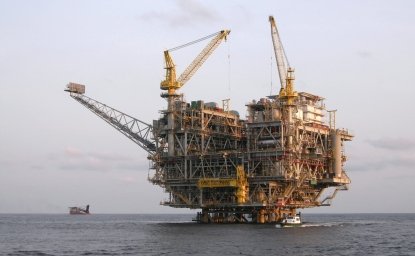India-Venezuela Relations: A Case Study in Oil Diplomacy



Since 2008, India has been the second largest customer for Venezuela’s oil exports, behind only the United States and just a hair’s length ahead of China. Following the U.S. imposition of sanctions against Venezuela’s oil sector last month, India has moved into position as Venezuela’s principal oil market and source of foreign exchange.
In a new report, Mumbai-based researcher Hari Seshasayee offers an in-depth analysis of Indian-Venezuelan relations, explaining how—unlike Russia or China—India is an invaluable commercial partner for Venezuela but not an ideological or political ally. Venezuela’s declining production levels and additional pressure from the United States may negatively affect India’s willingness to trade with Venezuela in the short term. But in the long run, given India’s demand for oil and the size of Venezuela’s oil reserves, Seshasayee sees the fortunes of both countries as inescapably tied together.
Crude petroleum is the cornerstone of the India-Venezuela relationship—accounting for 98.54 percent of Venezuela’s exports to India in 2017–18. India and Venezuela enjoy a synergy with heavy crude, which matters even more in the long run as technology makes heavy crude easier and cheaper to extract, transport, and refine. The Indian government has also invested strategically in Venezuela, participating in joint exploration and downstream projects that India has viewed as key to securing the country’s long-term energy needs.
Photo Credit: Voice of America / Public Domain
Author

Advisor to the Foreign Minister of Panama and Asia-Latin America Expert, UNDP

Latin America Program
The Wilson Center’s prestigious Latin America Program provides non-partisan expertise to a broad community of decision makers in the United States and Latin America on critical policy issues facing the Hemisphere. The Program provides insightful and actionable research for policymakers, private sector leaders, journalists, and public intellectuals in the United States and Latin America. To bridge the gap between scholarship and policy action, it fosters new inquiry, sponsors high-level public and private meetings among multiple stakeholders, and explores policy options to improve outcomes for citizens throughout the Americas. Drawing on the Wilson Center’s strength as the nation’s key non-partisan policy forum, the Program serves as a trusted source of analysis and a vital point of contact between the worlds of scholarship and action. Read more


Indo-Pacific Program
The Indo-Pacific Program promotes policy debate and intellectual discussions on US interests in the Asia-Pacific as well as political, economic, security, and social issues relating to the world’s most populous and economically dynamic region. Read more

Explore More
Browse Insights & Analysis
Russian-Venezuelan Relations at a Crossroads

La esencia de la infraestructura global: perspectivas del líder de la industria Matt Harris

